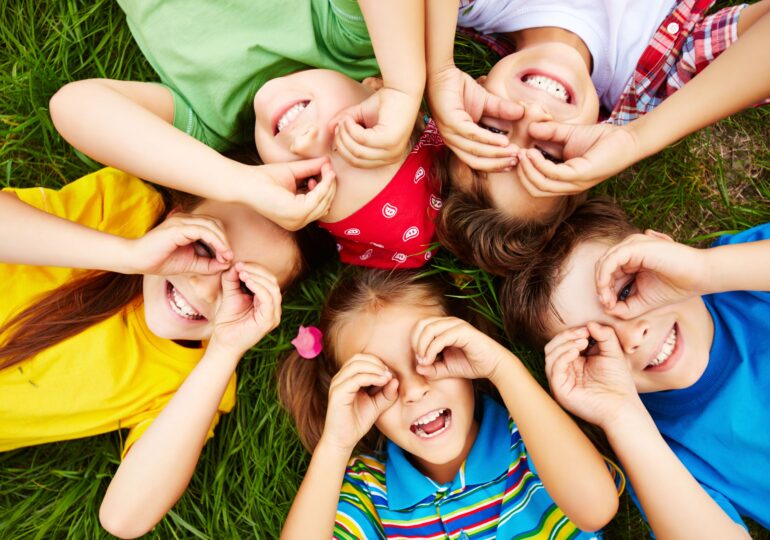In Rebekah Underwood’s preschool class in Santa Monica, California, children born around 2020 seem different. They are between 5 and 6 years old, but hesitate to jump on both feet or climb.
Physical underdevelopment could be the result of isolation at an age when curiosity about the surrounding environment should flourish. They are the pandemic children, those who have grown up indoors, without playgrounds, without kindergartens, without direct contact with other children, according to an analysis published by BBC.
Childhood in Isolation
In March 2020, the lives of the world's 2.2 billion children changed radically. Clubs, sports, school dances, and excursions were replaced by screens, indoor games, and anxiety. On average, schools were closed for 5.5 months, but in some cases, the period was much longer.
Lack of social contact, parental pressure, and global uncertainty have contributed to a harmful environment for children's emotional and cognitive development.
Human trials begin with a nasal vaccine against Covid-19
Overstimulated and Fragile Children
Underwood notes that her students are easily scared by noises and chaos. For two years, the school suspended music classes - the sounds of instruments caused anxiety. "Half the class was crying or going outside," she recalls.
Only in 2024 did these activities timidly resume. The lack of early interactions - playgroups, socializing in public spaces - seems to have negatively influenced tolerance for normal stimuli.
The BICYCLE study in the UK analyzes the impact of lockdowns on babies born between March and June 2020. The initial results show delays in language development and executive functions - the ability to concentrate, follow rules, or inhibit impulsive reactions.
"Communication is affected," warns psychologist Nicola Botting. The lack of vocal and mimetic diversity in the first year of life seems to be a major cause.
Massive Educational Losses
Over 1.6 billion students in 190 countries had their education interrupted. Many did not have access to the internet or computers.
A report from the US National Academies shows that students are "weaker in every respect" compared to pre-pandemic times, especially those from disadvantaged backgrounds. Math assessment scores globally dropped by 14%, equivalent to seven months of lost school.
Educational researcher Maciej Jakubowski warns that "gaps exist and do not disappear." In Poland and Greece, losses equivalent to a full year of studies are real. Other countries - Brazil, Mexico, USA - have suffered even more.
Oxford's Bastian Betthäuser shows that deficits have persisted even after schools reopened, with no clear sign of recovery, and children from affluent families are recovering faster.
Enormous Economic Costs
Studies estimate that educational losses could reduce economic growth by 0.35% in some countries. In the US, the impact on the economy is estimated at 128-188 billion dollars annually. "It's a huge economic impact," says Jakubowski. Solutions exist - personalized tutoring, support in small groups - but they are expensive and challenging to implement on a large scale.
In the UK, obesity in 10-11-year-olds increased by 56,000 cases during the pandemic. Decline in physical activity and changes in diet are the main causes. Estimates show a social cost of 8.7 billion pounds.
Meanwhile, anxiety, depression, and problematic behaviors in children have reached alarming levels, amplified by parental stress and lack of social support.
Emotionally More Mature, but More Vulnerable
Paradoxically, some researchers - such as Judith Perrigo from UCLA - have observed an increase in emotional maturity among children. "Exposure to heavy subjects - news about death, collective anxieties - has made some children more empathetic and emotionally aware," she says.
However, language, cognition, and social skills have significantly decreased at the same time.
Tandy Parks, a social worker in Los Angeles, says that many children between 4 and 7 years old display behavioral reactions similar to those of 2 and a half-year-olds. Delays in bladder control, difficulties in separating from parents, and lack of social skills are common.
"Parents are still managing the consequences of isolation," she says. Poor communication and uncertain boundaries have affected family dynamics.
What's Next?
Researchers hope that the results will help not only in the case of future pandemics but also for children growing up in culturally or socially isolated environments.
"We need focused, science-based interventions," says Perrigo. Otherwise, the negative trend will continue. "It won't improve on its own in the next five years. Not even in the next decade," she warns.
Professor Underwood notes small progress. The new children jump, roll, and participate more actively in music lessons. "There is a clear improvement," she says. "They are more adventurous, although socio-emotional development remains delicate."

